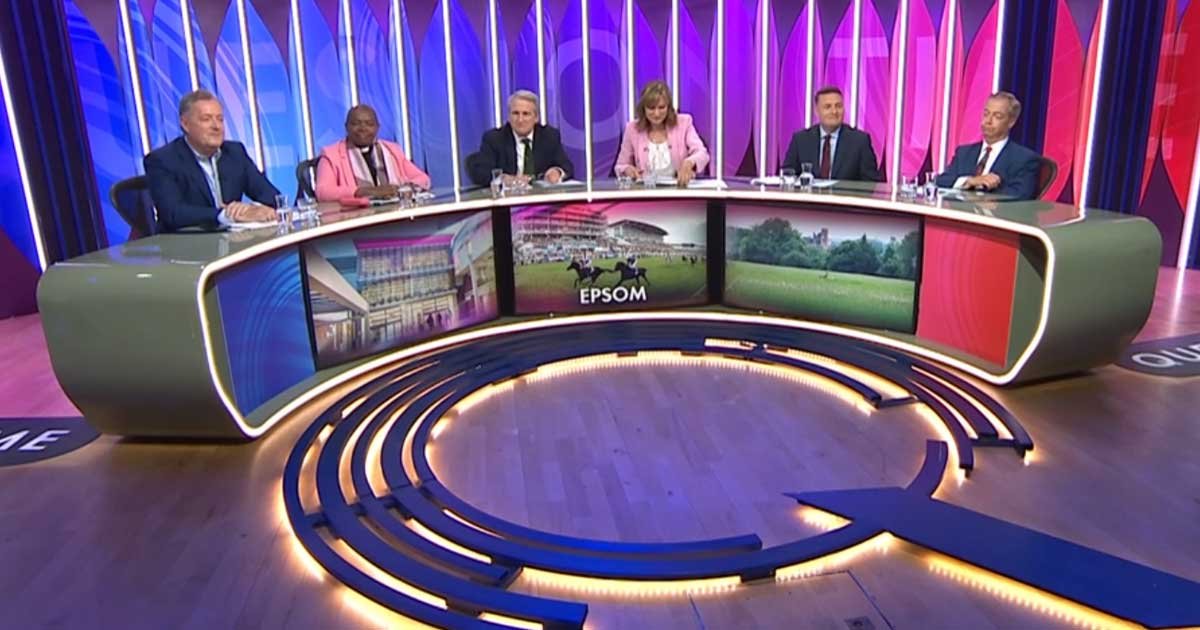On 30 May 2024 BBC Question Time took place in Epsom, Surrey, with a panel featuring Conservative schools minister Damian Hinds, Labour’s shadow health secretary Wes Streeting and honorary president of Reform UK Nigel Farage, as well as broadcaster Piers Morgan and the Bishop of Dover, the Right Reverend Rose Hudson-Wilkin.
We fact checked the programme live—here’s our round-up of claims on Labour’s NHS record, how industrial action has impacted waiting lists, the Conservatives’ national service proposals, the size of the army and Labour’s plans to tax private school fees.
Labour’s NHS record
Labour’s shadow health secretary Wes Streeting claimed that when his party was last in government, it delivered the “shortest waiting times and the highest patient satisfaction in history”.
We’ve written about this before—both waiting times and patient satisfaction have been measured in many different ways since the NHS was founded in 1948, and it’s not clear how different periods of history can be compared in order to claim the last Labour government delivered records under these measures.
We simply don’t have data about waiting times for the first few decades of the NHS’s history, and some of the later data we do have isn’t comparable between governments, as the graph below shows.
Impact of strikes on waiting lists
Conservative schools minister Damian Hinds also talked about NHS waiting lists, saying “industrial action … doesn’t help to bring that backlog down”.
It’s hard to be sure what impact recent strikes in the health service have had on waiting lists. Analysis by the Nuffield Trust and the Health Foundation, two health think tanks, suggests that although strikes did have an effect, waiting lists would probably have grown last year even if they hadn’t happened.
Analysis by NHS England itself suggests the same. However it also suggests that in the scenario where no strikes happened, by early 2024 the main RTT (“referral to treatment”) waiting list would have returned to around the level of late 2022 and early 2023.
We’ve written more about strikes and waiting lists in our NHS waiting lists explainer.
Conservatives’ national service plans
Reform UK’s Nigel Farage said the Conservatives’ proposed national service policy would only see one in 36 youngsters do military training.
Based on current population estimates though, it’s more like one in 26.
Mr Farage also said the policy would see those doing national service in other organisations do 25 hours in a year. As Question Time’s presenter Fiona Bruce pointed out though, it’s actually 25 days in a year.
Size of the Army
Mr Farage also said that “when this government came into office there were 100,000 people in the British Army, it’s now 73,000”.
This actually appears to slightly understate the fall in the total size of the UK Army Regular Forces since 2010.
The number of UK Army Regular Forces personnel (trained and untrained) fell from about 109,000 in 2010 to about 75,000 in 2023, while the number of fully trained personnel fell from about 102,000 to about 73,000 (as of 1 January) over the same period. However, as we wrote in our recent explainer on this topic, there are many different ways of counting serving personnel.
Private school fees
The final section of the programme was dominated by a discussion of Labour’s plans to remove private schools’ charitable status and levy VAT on private school fees.
Piers Morgan claimed the policy would lead to “hundreds of kids” attending state schools who otherwise would have attended private schools, and that this would “swamp our system”.
Accommodating pupils who would otherwise have gone to private schools in state schools would require extra funding. But the Institute for Fiscal Studies (IFS) says that falls in private school numbers as a result of Labour’s policy are “likely to be small” in the short run.
The IFS estimates that Labour’s policy of levying VAT on private school fees could lead to a reduction in private school attendance of 3-7%, which it says “would likely generate a need for about £100–300 million in extra school spending per year in the medium to long run”.
However, it also estimates the policy would generate around £1.6 billion a year in revenue, meaning Labour’s policy could result in a net gain of £1.3-£1.5 billion a year in the medium- to long-run. Altogether it says this “would allow for about a 2% increase in state school spending in England”.
This analysis has been challenged by the Adam Smith Institute, which in its own report argued that it would be “reasonable and cautious”, to consider a “less optimistic” scenario of 10-15% of pupils migrating to state schools, under which it estimates the policy would generate no net revenue.
It’s also worth noting that the total number of pupils in state schools is expected to fall in the coming years (and is projected to have fallen this year compared to last year), so any influx of pupils from the private school system would take place in the context of otherwise decreasing demand for state school places.
The IFS says: “It is possible that the state sector could easily accommodate extra pupils given that overall pupil numbers across England are due to decline by at least 100,000 per year on average up to 2030.”
